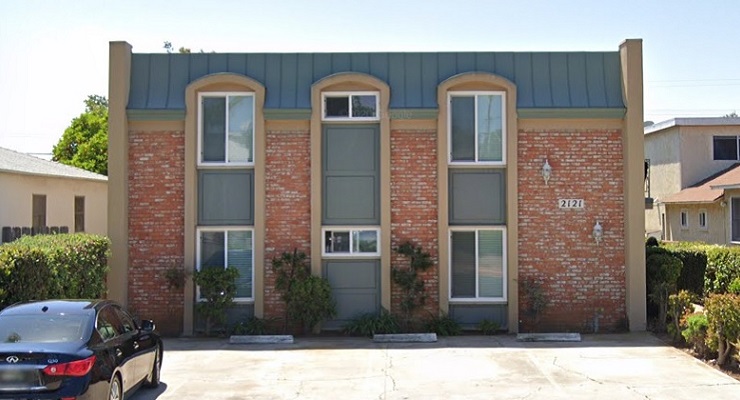
As Southern California and the nation likely expect an economic boom this summer and beyond, rental activity in Pasadena is beginning to see a lot of movement as well. Much of it, say real estate professionals, is directly tied to the lifting on COVID-19 restrictions on June 15.
As the economy strengthens, they say, so does the job market, igniting the housing market for both rentals and sales.
“Right after June 15,” said housing provider Debra Lutz, “there was an increase, an immediate activity of people looking. And maybe it was tied to that.
“What I noticed that was different than a few months before,” she said, “is that all of a sudden there was an influx of people looking for housing because of new jobs. They were coming from out of state and out of the area, to take new positions and wanting to live in the area.”
While new renters are looking specifically in Pasadena, the range of occupations is widespread, said Lutz.
“These jobs are not all related to Caltech or JPL,” she explained.
Lutz noted that over the five to seven years, she has noticed an increasing trend towards people working in tech medical, many of them post-graduates of USC, and postdoctoral students.
Said Lutz, “A lot of them are looking in Pasadena. All these people in the medical industry, but also tech industries, and that literally had been kind of a dead market during COVID.”
For these new jobs, said Lutz, there is a high demand for one bedroom units.
Lutz also noted that during the COVID pandemic, she was “extremely busy,” as many people were leaving the Los Angeles area to return to their out of state homes because they no longer needed to live and work in the same community, since they could work remotely.
Working at home worked both ways, Lutz explained. Just as many workers were returning to the Pasadena area because they grew up here, had family here or they’d been living out of the area to be close to their jobs.
As the rental market has sprung to life, so has the housing sales market, as more renters are becoming buyers, said Ann-Marie Villicana, a real estate broker at Dilbeck Estates.
From Villicana’s experience, “Everybody who’s moved has bought a new house, so they’re moving from their rental property to a new home, which is great, which is what they’re supposed to do. You want people to rent, save enough money to then have their own home that they actually can manage and take care of and build their own appreciation.”
Much of that inspiration has come from being pent up over the last 16 months, spending less on commuting, and thinking about buying a house.
As Villicana pointed out, “I think there has been this sentiment that has built up over the last 15 months. “Do I really like my house? Do I really like where I live? Do I need more outdoor space? Do I really need the second bedroom? Do I need a patio more than I need the den?’”
New buyers are making a lot of evaluations of space and how they like the space, she said. As Villican pointed out, many of the new prospective buyers thought they were going to go back to work.
“I think a lot of people are just going to continue working from home, she said. “So if they’re working from home, maybe they can move into something either bigger, or less expensive or even nicer, who knows?”
Michael Shaar, broker owner of SIG property management, in La Crescenta also told Pasadena Now, that despite the challenges of the pandemic, the number of vacancies for his properties had dropped within the last 30 days.
In addition, his company has not seen a lot of the rental payments challenges experienced by both tenants and housing providers during the pandemic. Said Shaar, “The vast majority of our tenants have been paying rent. And I would say that for our particular portfolio of 300 properties, that represents over 90%.
Shaar also noted, however, that his company has “absolutely had some people who have been impacted by COVID. And the majority of them have been very straightforward about if they can pay or not, they’ve sent in the money that they can and kept us updated. And we have worked with them to apply for government assistance where we can.
And Shaar, added conversely, “On the other hand, we are fairly certain we have some of our tenants who probably are able to pay the rent and make a decision not to.”
A review of his company information, Shaar said, “For our company, we had a drop in activity (applications submitted, move-ins, and leases signed) in Feb and March compared to January. Our numbers in all these 3 categories increased significantly in April and May. So far June has also been more active with a week to go.”
Shaar continued, “We hope this means people are being able to get back to a normal home and work lifestyle again.”
“In terms of precents, if I compare our total applications submitted for Feb & March with those submitted in April and May we saw a jump of 74%. Our signed leases for the same period jumped 80%,” Shaar recapped.
Tenant rights advocate Allison Henry, however, sees a darker side to the sudden jump in rental activity.
As Henry said Tuesday, “In my neighborhood and apartment complex, we’ve had vacancies, people moving out. But I wouldn’t call it a ‘boom’ because, like the family that moved out in the back, they all consolidated their finances to live in one place because they were having hard times. And the guy who moved into the apartment, it was kind of a last resort for him because he wasn’t able to qualify for bigger places.
“So when I think about it,” she continued, “ I see vacancies in my neighborhood, I see vacancies in my apartment building, but those vacancies came because of hard times by the tenants.”
Meanwhile, trying to avoid what LA County Supervisor Hilda Solis called a “potential tsunami” of evictions, the Los Angeles County Board of Supervisors voted Tuesday to extend an eviction moratorium through the end of September, barring landlords in the county from evicting tenants fallen behind in rent from COVID-19 financial burdens.






